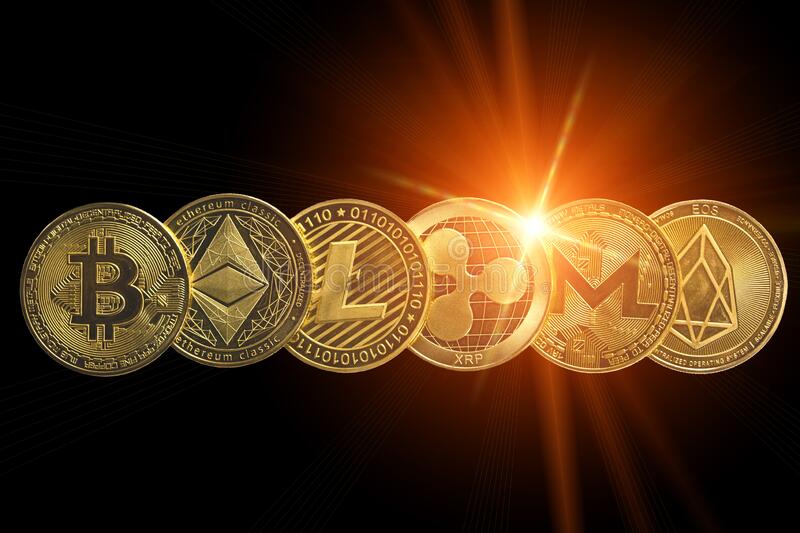The Rise of Cryptocurrency:
Understanding the World of Coin:
Cryptocurrency, or digital coins, have been making headlines in recent years. From Bitcoin to Ethereum, these digital assets have captured the attention of investors, tech enthusiasts, and the general public alike. But what exactly are coins, and how do they work? In this article, we will delve into the world of cryptocurrency and explore its rise to popularity.

What are Coins?
Coins, also known as cryptocurrencies, are digital assets that use cryptography to secure their transactions and to control the creation of new units. They are decentralized, meaning they are not controlled by a central authority like a bank or government. Instead, they rely on a distributed network of computers to validate and record transactions.
Coins are created through a process called mining, which involves solving complex mathematical equations to add new blocks to the blockchain. The blockchain is a public ledger that records all transactions in a transparent and immutable manner.
The Rise of Coins
The first cryptocurrency, Bitcoin, was created in 2009 by an anonymous person or group using the pseudonym Satoshi Nakamoto. Since then, thousands of coins have been created, with new ones popping up almost daily.
Coins gained popularity due to their potential to disrupt traditional financial systems. They offer fast, secure, and low-cost transactions without the need for intermediaries. This has made them attractive to investors and traders looking for an alternative to traditional assets like stocks and bonds.
Coins have also been embraced by the tech community, who see their potential to power new applications and services. For example, Ethereum, the second-largest coin by market capitalization, allows developers to build decentralized applications (dapps) on its blockchain. These dapps can be used for everything from gaming to finance.
The Future of Coins
The future of coins is uncertain, but many believe they will continue to play an important role in the financial world. As more people become aware of their potential, the demand for coins is likely to grow. This could lead to increased adoption and a higher valuation for some of the more established coins like Bitcoin and Ethereum.
Regulation is also likely to play a role in the future of coins. Governments around the world are starting to take notice of their potential and are beginning to create laws to govern their use. This could lead to increased legitimacy and acceptance for coins, but it could also lead to restrictions on their use.

Advantages:
Decentralized:
One of the biggest advantages of coins is that they are decentralized. This means they are not controlled by any central authority like a government or a bank. This makes them more resilient to government or economic instability, and reduces the risk of fraud.
Fast Transactions:
Coins allow for fast and secure transactions without the need for intermediaries. This means you can send money to anyone, anywhere in the world, within seconds.
Privacy:
Transactions made with coins are generally anonymous, which provides a level of privacy that traditional banking systems do not offer.
Lower Transaction Fees:
Coins typically have lower transaction fees compared to traditional financial systems, making them a more cost-effective option.
Accessibility:
Anyone with an internet connection can use coins, making them accessible to people in parts of the world without access to traditional banking systems.
Disadvantages:
Volatility:
The value of coins can be highly volatile, and prices can fluctuate rapidly. This makes them a high-risk investment, as you could lose a significant amount of money if the price of a coin drops suddenly.
Lack of Regulation:
Coins are not yet regulated in most countries, which means there is no protection for investors if something goes wrong. There is also a risk of fraud and scams in the cryptocurrency market.
Security:
While coins are generally secure, there have been instances of exchanges being hacked and coins being stolen. This highlights the importance of keeping your coins secure and taking appropriate measures to protect your investment.
Limited Acceptance:
Despite their growing popularity, coins are not yet widely accepted as a form of payment. This means they may not be as useful as traditional currency in some situations.
Environmental Concerns:
The mining process for coins requires a significant amount of energy, which has raised concerns about the environmental impact of cryptocurrency.
Conclusion
Coins are a fascinating development in the world of finance and technology. They offer a new way of thinking about money and transactions, and their potential to disrupt traditional systems is immense. Whether they will become a mainstream asset class remains to be seen, but their rise in popularity shows that they are here to stay. As always, investors and traders should exercise caution when investing in coins, as their high volatility and lack of regulation make them a risky investment.
